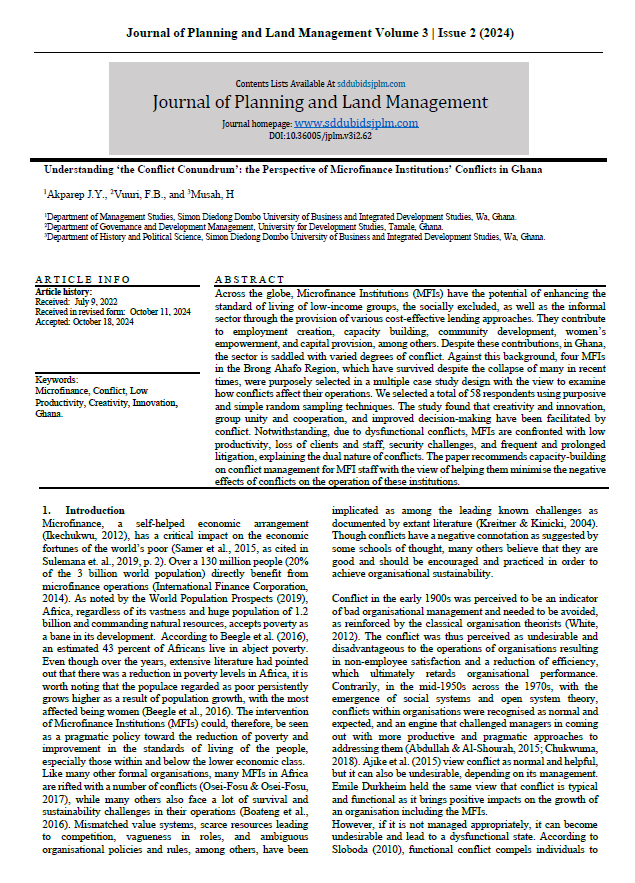Understanding ‘the Conflict Conundrum’: the Perspective of Microfinance Institutions’ Conflicts in Ghana
DOI:
https://doi.org/10.36005/jplm.v3i2.62Keywords:
Microfinance, Conflict, Low Productivity, Creativity, Innovation, GhanaAbstract
Across the globe, Microfinance Institutions (MFIs) have the potential of enhancing the standard of living of low-income groups, the socially excluded, as well as the informal sector through the provision of various cost-effective lending approaches. They contribute to employment creation, capacity building, community development, women’s empowerment, and capital provision, among others. Despite these contributions, in Ghana, the sector is saddled with varied degrees of conflict. Against this background, four MFIs in the Brong Ahafo Region, which have survived despite the collapse of many in recent times, were purposely selected in a multiple case study design with the view to examine how conflicts affect their operations. We selected a total of 58 respondents using purposive and simple random sampling techniques. The study found that creativity and innovation, group unity and cooperation, and improved decision-making have been facilitated by conflict. Notwithstanding, due to dysfunctional conflicts, MFIs are confronted with low productivity, loss of clients and staff, security challenges, and frequent and prolonged litigation, explaining the dual nature of conflicts. The paper recommends capacity-building on conflict management for MFI staff with the view of helping them minimise the negative effects of conflicts on the operation of these institutions.
Downloads

Downloads
Published
How to Cite
Issue
Section
License
Copyright (c) 2024 Journal of Planning and Land Management

This work is licensed under a Creative Commons Attribution-NonCommercial 4.0 International License.








